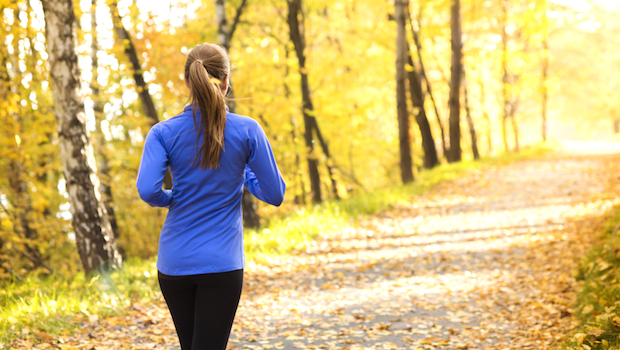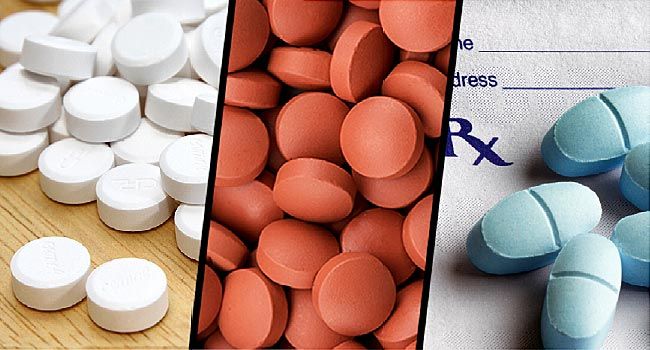Premenstrual Syndrome or PMS is a condition characterized by a range of physical and psychological symptoms that many women in their reproductive years suffer from. The syndrome is primarily diagnosed by the degree of disruption it poses to daily life. To know more about PMS, its causes, symptoms and diagnosis, please click here.

If you are a PMS sufferer, then you know only too well the all-consuming effect that it can have on your life. The most atrocious and mind-numbing fact about it is that after two weeks of PMS and one week of periods, you are left with only a handful of days on any given month, when you can live your life, free of pain and discomfort. Shockingly, most women suffer in this manner for years, not knowing or even realizing that relief from their symptoms is a very real possibility, should they choose to take the right steps towards wellness.
In this article, we explain the ways in which you can free yourself from the clutches of this condition.
Management of PMS is generally a multipronged approach that involves lifestyle modification, medication and alternative therapies.
LIFESTYLE MODIFICATION
Dietary habits
- Avoid or reduce consumption of processed foods laden with simple sugars and carbs (read: refined sugar and white flour), salt and preservatives.
- Let whole-grain (complex carbohydrates) and fiber based foods be your primary choice.
- Load up on natural vitamin B6, magnesium and iron by including green leafy vegetables and whole grain products in your daily diet.
- Cut down on the fat, especially the saturated kind.
- Portion control for-the-win! Plan for six small meals a day instead of three humongous ones.
- As soul wrenching as this may sound, avoid or reduce your daily caffeine dose – this includes tea, coffee, energy drinks, sodas, chocolate and certain over-the-counter medications.
- Ditch the partying – say no to smoking, alcohol and other intoxicating/controlled substances.
Behavioral habits
Low levels of the hormones serotonin (mood stabilizer), dopamine (pleasure hormone), oxytocin (bonding hormone) and endorphins (happy hormone and natural pain reliever), have been directly linked to depressed mood, mood swings, irritability, appetite changes and sleep disturbances- all PMS symptoms.
Your goal should be to increase your body’s production of these hormones to naturally combat your symptoms. We have identified three ways you can go about doing this:
- Exercise– a regular fitness regime that incorporates lots of aerobic activity (jogging, running, swimming or anything that gets your heart racing) is highly beneficial in stabilizing moods and sleep disturbances by production of serotonin and endorphins.
- Sunlight- just 5-20 minutes under moderate sunlight everyday works wonders in boosting your serotonin levels.
- Connection- stay connected to what brings you joy and happiness; be it hugging and kissing your human loved ones, playing with your non-human pets or indulging in a favorite pastime for your daily dose of dopamine and oxytocin.

MEDICATION
As there is no clear-cut medical cause for PMS, treatment focuses more on symptomatic relief rather than prevention and cure.
The safest medication to use (in moderation) is over-the-counter NSAIDS (Non-Steroidal Anti-Inflammatory Drugs) for management of physical pain, such as:
- Paracetomol
- Ibuprofen
- Aspirin
If these are unhelpful, you may then consider prescription medicines. However, these may relieve some symptoms, while worsening others, so it is important that you discuss with your doctor whether the benefits far outweigh the risks.
- Hormonal treatment- contraceptive pills, estrogen patches and other treatments that work to prevent ovulation by artificially tweaking your hormone levels, thereby managing physical symptoms attributed to the natural, cyclic drop in estrogen and progesterone levels.
- Diuretics – to combat water retention/bloating problems.
- Anti-depressants- such as SSRIs (Selective Serotonin Reuptake Inhibitors) to relieve psychological symptoms, particularly depression.
- Anti-anxiety pills to deal with crippling feelings of anxiousness.

ALTERNATIVE THERAPIES
Although the efficacy of most alternative therapies for PMS is not entirely backed by scientific evidence, there are many women who swear by them. Either way, we figure that there is no harm done in shedding some light on these tried and tested remedies vouched for by a community of women like you:
- Yoga, mindfulness and meditation – studies have strongly suggested that indulging in such activities may be highly useful in stabilizing psychological symptoms such as stress, anxiety and depression while also reducing physical symptoms such as bloating.
- Nutritional supplements – many women use an assortment of supplements, particularly Vitamin B6 and Multivitamins to offset any nutritional deficiencies that may exacerbate symptoms. Always consult your doctor before doing so too, as an overdose of multi-nutrients can do more harm than good.
- Evening Primrose Oil and other herbal supplements – the final word on this is mixed, although some women use them religiously. It should be kept in mind that such supplements may have adverse interactions with other medication, so it is advisable to get the green light from your doctor before stocking up.
We hope that you are now empowered with sufficient knowledge and practical tools that you can use to grab your pain by its horns, and tame it. Take action now; do not let PMS control your life anymore!

